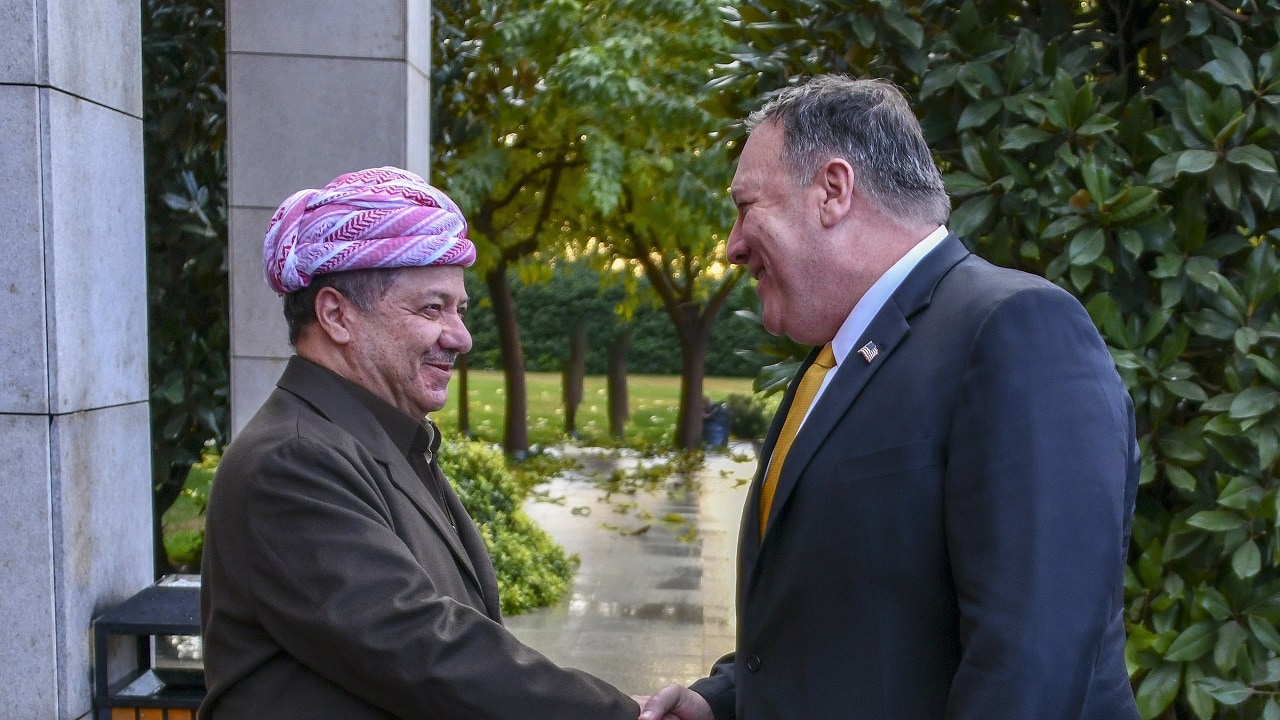An informal agreement governs Iraqi politics: a Shi’ite Arab holds the premiership, a Sunni Arab becomes speaker of the parliament, and a Kurd serves as president. Intra-Kurdish politics complicate the selection further. Masoud Barzani, who inherited the Kurdistan Democratic Party from his father, is a provincial leader who has long prioritized tribal and family interests to the detriment of Kurds and Iraqis. His alliance with Saddam Hussein, just eight years after the Iraqi dictator used chemical weapons against fellow Kurds, shows his willingness to promote family political interests over any ethnic constraints. Barzani may have been a collaborator and king of the jash, but his power was undisputed.
After the U.S.-led invasion of Iraq, Barzani cloaked himself in the mantle of Kurdish nationalism, although his actions appeared more to do with a desire to accumulate absolute local power. It was in this context that, in 2005, he struck a bargain with longtime rival Jalal Talabani, head of the more progressive Patriotic Union of Kurdistan (PUK). Talabani would become president in Baghdad, leaving Barzani as the dominant figure in Iraqi Kurdistan.
That worked for the next 13 years. Talabani was gregarious and took his role as a mediator and factional peacemaker seriously. Fuad Masum, a relatively colorless PUK functionary, succeeded as president after Talabani suffered a debilitating stroke. After the last election, however, Barzani sought to break the compact: Talabani was gone and the PUK share of the Kurdish vote had declined, at least officially. In reality, KDP vote rigging is notorious.
It was against this backdrop that Barzani nominated Fuad Hussein, his longtime consigliere, to be the KDP presidential candidate. The PUK, meanwhile, nominated Barham Salih, a former PUK prime minister who believed that Kurdish security required a stable, democratic Iraq. Fearing a Barzani temper-tantrum that could undermine the fight against the Islamic State, however, Special Envoy Brett McGurk quietly lobbied against Barham. Barzani believed KDP control over the Iraqi presidency was a shoe-in. What none of Barzani’s aides dared tell him, however, was just how unpopular he was. Pledges to vote for the KDP candidate proved empty as not only Kurds, but also Arabs broke ranks to vote for Barham against a fundamentally unqualified candidate.
Barham’s presidency has been a success for Iraq: He was the mastermind of the Papal visit to Iraq, deftly guided Iraq through the 2019 protest crisis, and helped design electoral reform. Under normal circumstances, Barham would be an easy pick for a second term.
Barzani, however, wanted a loyalist, and so he turned to his uncle, Hoshyar Zebari. The problem was that the parliament had previously impeached Zebari for corruption. Zebari says the impeachment itself was invalid, but the Iraqi Supreme Court disagreed and disqualified Zebari from contesting the presidency. While Zebari has friends in Washington and across the Middle East from his long tenure as Iraq’s foreign minister, at best he can claim selective prosecution. From his time as the KDP representative in London a quarter-century ago, Zebari was known for corruption. He was famous for soliciting cash from the British Kurdish community and then double-billing the Kurdistan Regional Government. He was shamelessly dishonest: Prior to his death, former Kirkuk Governor Najmaldin Karim acknowledged that Zebari masterminded slandering critics of Barzani corruption with accusations of sexual deviance, a potential death sentence in a conservative society.
Yesterday, Barzani appointed Kurdish Interior Minister Rebar Ahmed Khalid to replace Zebari as his candidate. This is an insult to both Kurds and Iraqis. Rebar was for seven years a member of the Parastin, the Kurdistan region’s secret police. As Kurdish Interior Minister, he has targeted anyone seen as anti-Barzani irrespective of the law. Rebar may not be a household name in Washington, but he is among Iraq’s worst human rights violators. That Rebar was also a vocal proponent of Barzani’s failed 2017 succession drive simply underscores the disdain for Iraq that he represents.
Following the eruption of nationwide protests in 2019, Iraqi politicians like Muqtada al-Sadr sought to reinvent themselves as anti-corruption activists. To ally with the Barzanis today, however, suggests their insincerity. Barzani’s nomination of Fuad Hussein in 2018, and then Zebari and now Rebar this year show disdain for clean government and Iraq’s future prospects. Party leaders may strike deals with Barzani, but any self-respecting politician should break ranks or face the wrath of ordinary Iraqis.
Nor should foreign diplomats worry. For too long, fear of the Barzani temper tantrum has shaped White House and State Department policy. It is now time to call his bluff. His moment has passed. Both Iraq’s future and the prosperity of its Kurdish region require relegating Barzani to the dustbin of history alongside Saddam Hussein’s other allies.
Now a 1945 Contributing Editor, Dr. Michael Rubin is a Senior Fellow at the American Enterprise Institute (AEI). Dr. Rubin is the author, coauthor, and co-editor of several books exploring diplomacy, Iranian history, Arab culture, Kurdish studies, and Shi’ite politics, including “Seven Pillars: What Really Causes Instability in the Middle East?” (AEI Press, 2019); “Kurdistan Rising” (AEI Press, 2016); “Dancing with the Devil: The Perils of Engaging Rogue Regimes” (Encounter Books, 2014); and “Eternal Iran: Continuity and Chaos” (Palgrave, 2005).

